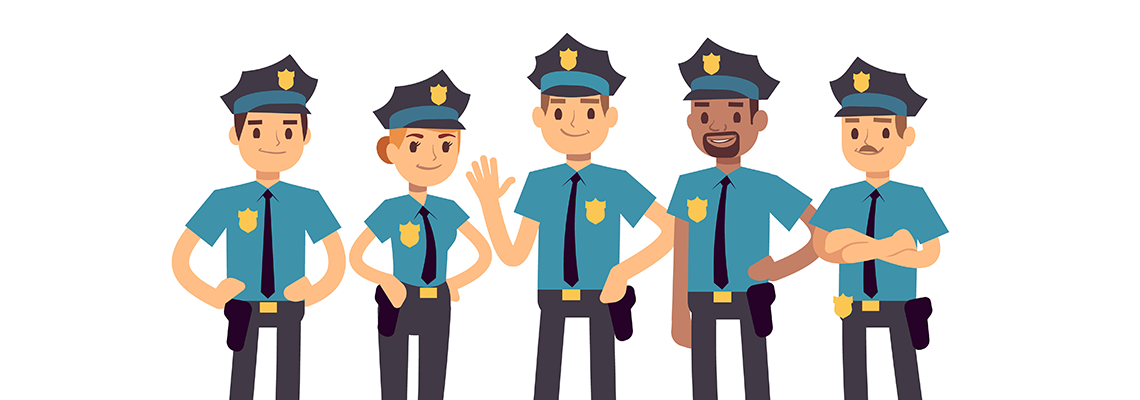
3 SCENARIOS WITH POLICE ENCOUNTERS
Scenario 1:
You are strolling down the street, maybe shopping or looking for a restaurant to eat at. You see a police officer approaching you.
Why is the officer looking at me? I haven’t committed a crime.
Now the Officer and you are face to face…
Officer… “Do you mind if I speak with you for a minute”
You…. “Uh…sure… yes…”
The above scenario is called a consensual encounter. The officer asked to speak with you and you agreed therefore you have consented to a conversation. Hence the encounter is consensual.
“During a consensual encounter, a citizen may voluntarily comply with a police officer’s requests or choose to ignore them. Because the citizen is free to leave during a consensual encounter, constitutional safeguards are not invoked.” Popple v. State
The important fact to consider during a consensual encounter is that the officer cannot restrict your freedom to leave or your right to refuse to answer any questions.
Scenario 2:
You are driving home late at night. There are no other cars on the road. The speed limit is 30mph and you are traveling 50mph. Before you know it you see the red and blue flashing lights behind you. You pull your car over to the side of the road.
Officer… “The reason I stopped you is because I clocked you traveling 50 mph in a 30 mph speed zone” “May I see your driver’s license, registration, and insurance?”
You… Produce the requested documents
Officer…”Just wait right here and I will be back” the Officer heads back to his patrol car with your documents.
The above scenario is an investigatory stop.
The Officer has probable cause to believe that you have committed a traffic infraction therefore the Officer may affect a traffic stop. The encounter is an investigatory stop based on probable cause to believe a traffic infraction has occurred.
“As a general matter, the decision to stop an automobile is reasonable where the police have probable cause to believe that a traffic violation has occurred.” Whren v. United States.
The investigatory stop is a temporary detention by the Officer to investigate the violation of the traffic infraction. Here your freedom is restricted as you are not free to leave during the course of the traffic stop.
Scenario 3:
During the traffic stop the Officer comes back to your vehicle and issues you a traffic citation for speeding. The Officer hands the documents back to you. Before you drive away the Officer asks if you would consent to a search of the vehicle. You consent to the search.
Upon a search of the vehicle the Officer finds a bag containing a white powdery substance in the center console of the vehicle. You spontaneously confess that the substance belongs to you. The Officer conducts a field test of the suspected substance which reveals positive for cocaine.
Now the Officer has probable cause to believe that a crime has been committed and therefore the Officer can effect an arrest. An arrest is a seizure of your person as you are no longer free to leave and your freedom is restricted.
These are the 3 different police encounters however this blog post does not encompass all the different types of scenarios.
Thank you for visiting this site and taking the time to read this post.
Disclaimer: This blog post is a broad overview and discussion for educational and informational purposes only. None of the information contained in this blog post should be constructed as legal advice.
If you have been arrested or accused of a traffic infraction you may wish to speak with an attorney to understand your legal rights and the legal process.
